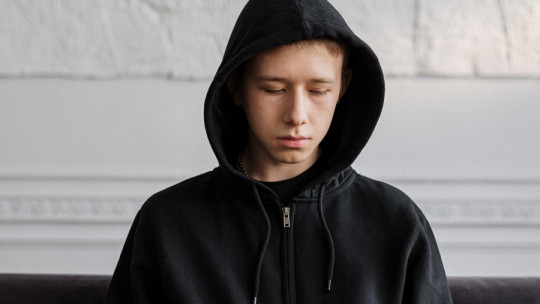
Raising children is one of the most important responsibilities that fathers and mothers face. You always want the best for them, wanting to see them grow and prosper in a world that often presents complicated challenges. In this journey of parenting, a growing problem and danger appears that should not be overlooked: the normalization of alcohol among adolescents and young people
In our societies, alcohol and its consumption are often presented as an integral part of social life, and it is crucial that parents are alert and prepared to openly address this issue with their sons and daughters. The normalization of alcohol at an early age can have serious repercussions on physical, mental and emotional health and should in no case be considered an isolated problem.
In this article, we will explore in depth the factors that contribute to this normalization and, more importantly, provide practical strategies and open conversations that can help us prevent our children from falling into this dangerous trap.
The problem of alcoholism
It is common to consider alcoholism as a public health problem, but, nevertheless, alcohol is free of any prohibitive legislation and is one of the most present substances in our daily lives. Alcohol and its consumption are part of socialization and, to a certain extent, it seems impossible not to consume it during adolescence and youth in order to belong more closely to the peer group. The normalization of alcoholism refers to the process by which excessive and problematic alcohol consumption becomes common or acceptable in the lives of young people. In other words, when our children begin to consider excessive alcohol consumption as a normal part of everyday life, we are facing a serious problem. This goes beyond the occasional drink at a celebration; It involves incorporating alcohol into your lifestyle and identity, often without being aware of the associated risks.
Risk factor’s
To effectively address the normalization of alcoholism among youth, it is crucial to understand the risk factors that contribute to this phenomenon. These factors are like warning signs that we must recognize and proactively address. Some of the most common risk factors include:
1. Influence of the media and popular culture
The media, including movies, television shows and social media, often portray alcohol consumption in glamorous and frequent ways
2. Peer pressure
The need to belong to a group or be accepted by friends can lead young people to participate in alcohol use, even if they are not safe or comfortable with it.
3. Access to alcohol
If young people have easy access to alcohol at home or through older friends, they are more likely to experiment with it.
4. Lack of education
Lack of adequate education about the risks and consequences of excessive alcohol consumption can lead young people to underestimate the dangers
5. Family dynamics
Family alcohol consumption patterns can have a significant impact on young people. If parents consume alcohol excessively or normalize irresponsible drinking, children may assume that this behavior is acceptable.
6. Stress and emotional problems
Young people experiencing stress, anxiety, or other emotional problems may turn to alcohol as a form of escape or self-treatment. ##How to prevent the normalization of alcoholism
How to prevent the normalization of alcohol in young people
Preventing the normalization of alcoholism among young people is a fundamental commitment that parents can make. Below are some key strategies that can help you protect your children from this risk:
1. Open and honest communication
Open dialogue is the basis for addressing any problem with your children He talks to them about the risks of alcohol frankly and without judgment. He encourages questions and discussion, and listens to your concerns. This will allow them to come to you when they have questions or face difficult situations related to alcohol.
2. Educate about alcohol
Provides accurate, evidence-based information about alcohol and its effects on the body and mind. Explain to them the risks associated with excessive alcohol consumption, such as health damage, academic and legal problems.
3. Encourages informed decision making
Help your children develop critical decision-making skills. Teach them to evaluate the potential consequences of their actions now consider how alcohol consumption could affect your long-term goals
4. Set clear boundaries
It is important to establish clear rules regarding alcohol and enforce them. You can also establish rules about responsible drinking and the importance of not driving under the influence of alcohol.
5. Model responsible behavior
Parents are role models for their children. If you consume alcohol, do so responsibly and demonstrate self-control. Avoid excessive consumption and dangerous situations related to alcohol.
6. Monitor and maintain an active presence
Get to know your children’s friends and supervise their activities Maintain an active presence in their life so that they feel supported and supported. Being present and available can be essential in preventing the normalization of alcoholism.
7. Seek professional help if necessary
If you suspect your child is dealing with alcohol-related issues, don’t hesitate to seek help from a mental health professional or addiction counselor. The sooner you intervene, the better.
Conclusion
In summary, preventing the normalization of alcoholism in youth requires a multifaceted approach that includes open communication, education, setting limits, and modeling responsible behavior. By following these strategies, we can play an active role in protecting our children and helping them make informed and healthy decisions regarding alcohol.








